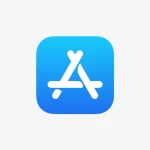Apple’s policy has always focused on one thing – user privacy. However, the recent Apple changes have come to light due to increased pressure from lawmakers and competitors. The adjustment has been made to promote fair competition while also maintaining the same level of data privacy.
This new change brings in new allowances for browser customization on iOS and macOS and shifts in the App Store. In this blog, we are going to look at some key aspects of Apple’s policy changes and what they mean for user security.

Using Proxies To Ensure Enhanced Security
If we talk about a plus point of Apple, it will always be security. Even though Apple’s policies limit the involvement of third-party applications, the recent changes allow more flexibility for users. But this change also comes with concerns about user security. For example, the new change comes with an option for customers to switch their default browsers from Safari to some other browsers.
Although it may give the user the flexibility they need, people can enhance their security even more with a proxy, if they tend to look for alternatives to Apple’s native apps but also worry about security issues. A proxy works by masking your IP address and connecting you to the internet using a virtual address. They can be used with any browser like Safari, Chrome, or Firefox. Luckily, today’s reliable platforms offer an extended proxy server list to make sure that users have connections from hundreds of spots globally.
Other than these benefits regarding privacy, using a proxy can also protect you from cyber-attacks and provide more stable connections. All these go on to show that even with the latest changes, the user can still secure themselves with the use of a proxy.
The Push Behind Apple’s Policy Changes
Apple has faced a lot of regulatory pressure from competitors and lawmakers regarding its restrictive practices for a long time. The Anti-trust investigations carried about by the European Union have always questioned Apple’s insistence on Safari as the default browser on iOS.
The reason behind this pressure is to promote fair competition and innovation. When users have the option to choose their default browser, they can ensure transparency to comply with data privacy laws. The growing demand for users to choose their default option, as evident from a study by Mozilla that showed over 98% of people want a browser choice screen, has made Apple carry on with the changes to please lawmakers and the general public. In the meantime, digital creators often share their opinion that Apple users usually prefer to keep using Apple’s software either by habit or because of its reliability.
How User Security is Affected by These Regulatory Changes
Users of Apple’s tech may need to be more vigilant when it comes to protecting their personal data online with the introduction of these regulatory changes. This is because if the company starts letting in too many third-party browsers and apps, it also increases the possibility of potential threats online.
The Apple Privacy Manifest offers a clearer insight for developers that can help with transparency regarding using data. This level of transparency and clearer data-sharing policies can reduce the amount of data that is used by third parties. However, users may still need to be a little more cautious to keep their data safe by using firewalls or proxies.
What Could Be Next For App Store Policies?
The App Store has also been under scrutiny for its antitrust concerns. It has a strict revenue-sharing model – 30% of revenue from apps goes to Apple – and limited third-party payment systems that restrict the user’s and developer’s functionality. Due to this increased pressure, the App Store could see major changes in terms of loosening restrictions on in-app payment options, allowing external payment methods, and clearer data-sharing guidelines. South Korea has already asked Apple to allow users to use alternative payment methods in its apps following a ruling accepted in the country.
These changes could benefit both developers and users since the reduced fees could give more resources to increase app functionality and increased transparency can help people understand how their data is being used.
To Sum Up
All in all, Apple seems to be going along with the requested changes from lawmakers, competitors, and their users. People want to be able to choose the browser that they like the most as their default option and the company has taken this into serious consideration.
It has also understood that it needs to offer fairer competition and give more third-party apps, payment methods, and browsers a chance. Having said that, this also requires users to be more vigilant to keep their data properly protected with the use of firewalls and proxies, especially since some of this comes with a very low price.












